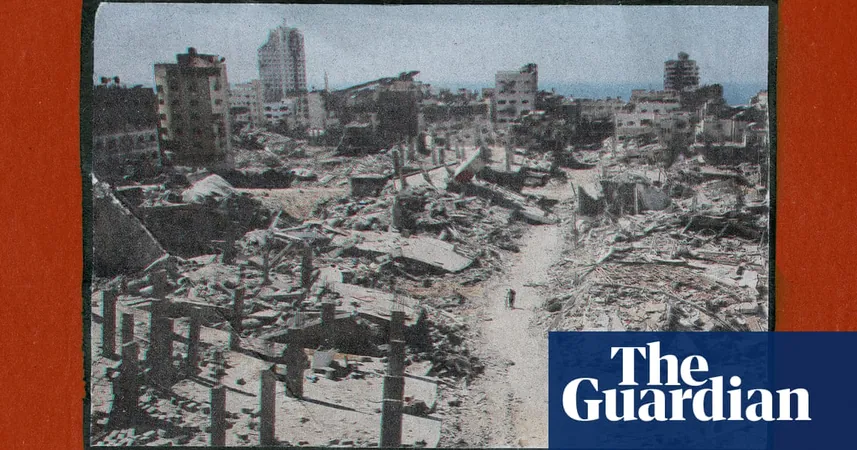
The Divided Discourse on Genocide: Gaza Sparks Academic Crisis
2024-12-21
Author: Kai
Introduction
A recent escalation in violence in Gaza, resulting in the deaths of over 45,000 Palestinians, has reignited a heated academic debate on the definition and implications of genocide. Reports from Amnesty International and Human Rights Watch have labeled Israel's actions as genocidal, with Amnesty firmly stating that genocide is being committed, while Human Rights Watch has suggested acts of genocide are taking place.
The Academic Divide
This intense discussion is exposing a significant schism among scholars specializing in Holocaust and genocide studies. The debate often hinges on whether the Holocaust represents a unique historical event or if it should be contextualized within a broader spectrum of mass violence. The recent conflict has refocused attention on a fundamental question: what purpose does genocide studies serve in the modern context?
Tensions at the Conference
Evidence of this divide was visible at a recent conference in Prague, where tensions flared into open conflict following the October 7 Hamas attacks. Pro-Israel scholars entered heated disputes with colleagues condemning Israeli military actions, leading to a dinner atmosphere reminiscent of a "high school fight," as described by Uğur Ümit Üngör, a Dutch-Turkish historian.
Fear of Backlash
The increasing prevalence of the term "genocide" in discussions about Israel's actions since October 7th has led to fear among scholars who wish to express critical viewpoints. Many feel pressured to remain silent due to potential backlash, reflecting a wider climate of fear pervading the academic community. Omer Bartov, a professor of Holocaust studies at Brown University, has noted that scholars with well-formed but nuanced opinions are increasingly hesitant to engage publicly.
Legal Complexities
While the International Criminal Court has issued arrest warrants for leading Israeli officials over alleged war crimes, the absence of genocide charges underscores the complexities involved in labeling actions as genocide. Legal experts grapple with proving "genocidal intent," a requirement that has historically been challenging.
Academic Freedom and Terminology
Amidst the ongoing crisis, questions of academic freedom have emerged, especially in U.S. universities, with many fearing retaliation for outspoken positions. The struggle over terminology—whether to describe Israel's conduct as genocide or merely acts of genocide—has brought varied interpretations and implications for international law into the spotlight, highlighting the need for a more nuanced understanding of mass violence.
A Broader Struggle
This academic rift also reflects a broader struggle between those who advocate for a unique interpretation of the Holocaust and those who see the necessity of considering all forms of genocide in our current global landscape. As scholars unite to confront the question of genocide in Gaza, a sense of urgency is palpable—what does it mean to study genocide in a time when it seems to be playing out in real-time?
Conclusion
As this discourse continues and escalates, it compels both scholars and the public to reckon with the evolution of extremes in conflict, human rights, and historical memory, demanding a critical re-evaluation of our perspectives on genocide and its implications for contemporary society. Will this split resonate beyond academic circles and into the political realm, urging authorities worldwide to confront these harsh realities? The outcome remains uncertain, but the implications are profound and necessitate our attention.

 Brasil (PT)
Brasil (PT)
 Canada (EN)
Canada (EN)
 Chile (ES)
Chile (ES)
 España (ES)
España (ES)
 France (FR)
France (FR)
 Hong Kong (EN)
Hong Kong (EN)
 Italia (IT)
Italia (IT)
 日本 (JA)
日本 (JA)
 Magyarország (HU)
Magyarország (HU)
 Norge (NO)
Norge (NO)
 Polska (PL)
Polska (PL)
 Schweiz (DE)
Schweiz (DE)
 Singapore (EN)
Singapore (EN)
 Sverige (SV)
Sverige (SV)
 Suomi (FI)
Suomi (FI)
 Türkiye (TR)
Türkiye (TR)